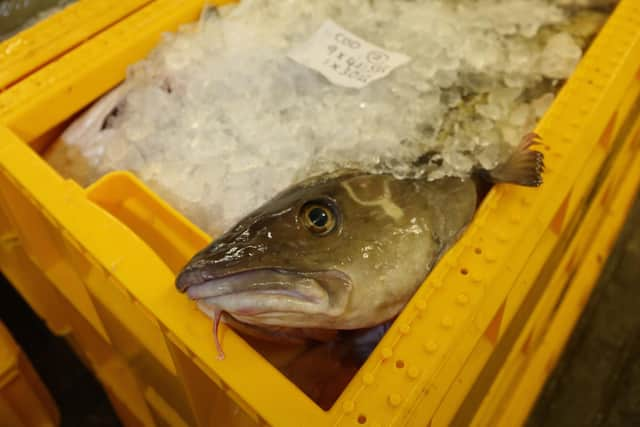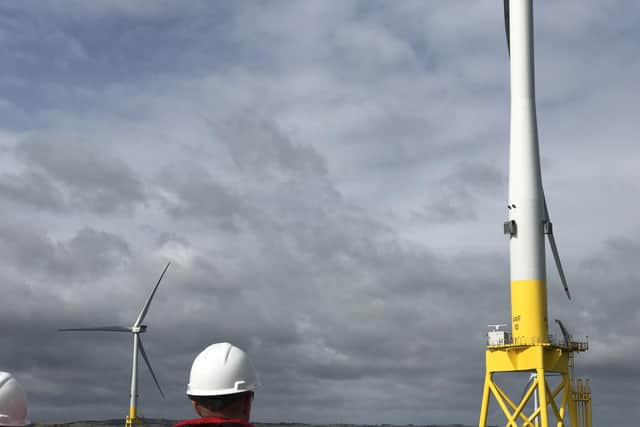Scottish fishermen voice fears over impact of massive offshore wind farms on key catch species
Shetland Fishermen's Association (SFA) is calling on the Scottish Government to consider the impact of a raft of new offshore developments proposed under ScotWind and Innovation and Target Oil and Gas (Intog) schemes, because the sites overlap on spawning and nursery grounds for some of the country’s most popular and commercially valuable fish.
They fear that building turbines in these ecologically sensitive areas could see populations of species such as haddock, cod, mackerel, herring and blue whiting adversely affected.
Advertisement
Hide AdAdvertisement
Hide Ad“We appeal to the Scottish Government and to offshore developers to undertake a full programme of research to more fully understand the impacts of anchoring offshore wind farms in the middle of fish spawning grounds,” said Daniel Lawson, executive officer for SFA.
“Ministers must adopt the precautionary principle and apply it.
“While the industry does not contest the concept of more offshore renewables, this rush towards development means that mistakes will be made – with Scotland’s productive and pristine fishing grounds potentially paying the price.
“Our government says it wants to support coastal communities, build a world-class fishing nation and protect the health of Scotland’s fish stocks.


“Our community relies on a sustainable fishing industry, and encouraging offshore wind farms without a full understanding of their impact is a real threat to the sustainability of those stocks.”
The SFA has used Scottish Government data and information from 120 fishing vessels to create a series of maps that show the overlap between proposed development areas and crucial ecosystems for young fish.
The risks are “laid bare in stark terms”, according to the membership organisation.


For example, only two out of 18 areas earmarked for turbine installation are outwith spawning or nursery grounds for haddock, Scotland’s most popular fish dish.
Advertisement
Hide AdAdvertisement
Hide AdThey say evidence is also mounting that lobsters and crabs can be harmed by electromagnetic fields from underwater power cables for offshore energy schemes.
Mr Lawson added: “Fishermen are now questioning whether ministers or Marine Scotland even took spawning grounds into account in their rush to auction off vast areas of sea to multinational energy firms.”
Comments
Want to join the conversation? Please or to comment on this article.
